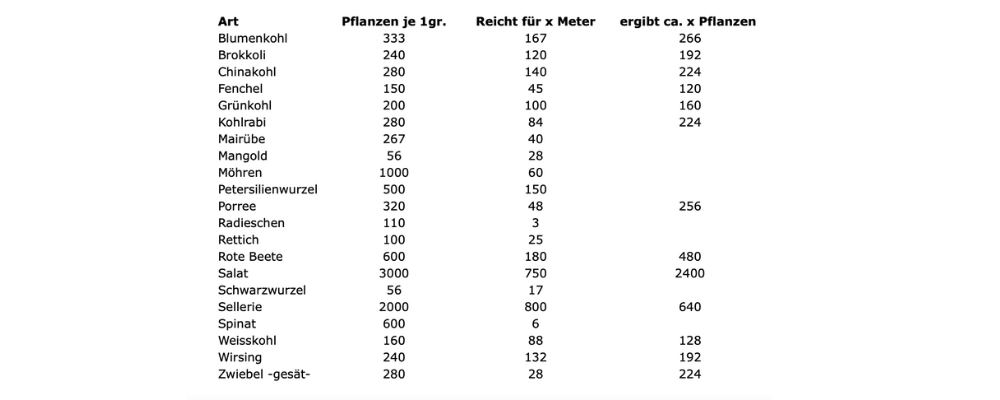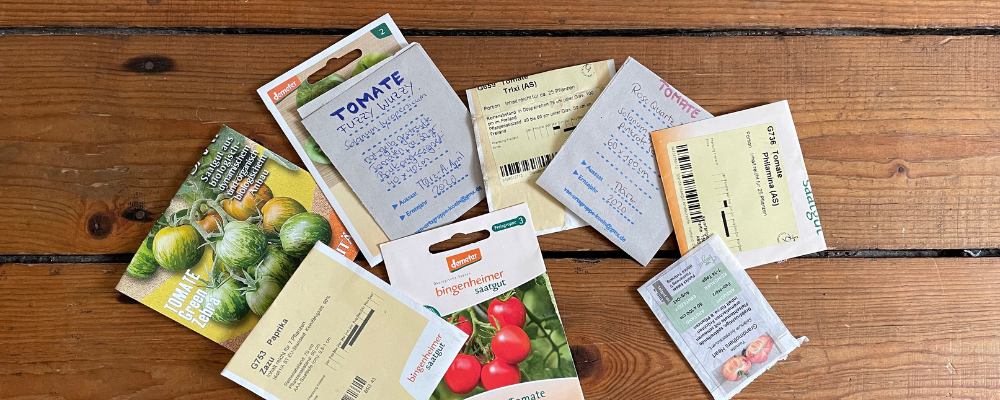Estimate seed requirements
Estimate seed requirements
To ensure that you order enough - and not too much - seed, you should calculate your seed requirements before buying.
Before buying seeds

The active gardening year 2022 is barely over and some people are already itching to order seeds again. Of course, it's still early days, but you can already start planning. You can already plan the beds in the app, but what seeds do you need? You should start by recording the seeds that are still available, otherwise you'll end up with 5 bags of parsley like me. Then you should be clear about what you want to grow next year and in what quantity. But how much seed do I need for the planned quantity? Depending on the type and supplier, the information on the seed bags varies from grams, meters, grains and "enough for x plants". How do I convert this if I know the number of plants I want or the length of the row? Unfortunately, there is no fixed conversion formula, as it depends on the type of vegetable. I have taken a chance and converted the available information on the most common types in such a way that hopefully a useful table has been created. The table below gives a result per gram per meter for species that are generally sown in rows and in grains and meters for individual plants. The result in meters assumes that the seed spacing is maintained, which is unrealistic. Depending on how well you can sow "thinly", the seed requirement must be higher. I have refrained from specifying the number of plants, just as species can actually be called "solitary", even if they are in rows (e.g. zucchinis, tomatoes, runner beans). For species that are pricked out and planted individually, I have assumed a germination rate of 80% and specified the space requirement in meters and plants.
Economical management
My information can only be a guideline so that you can estimate your seed requirements a little better. We should use resources sparingly and therefore not spend money on seeds that we won't need in the coming season. This surplus takes up space for proper storage, the germination capacity of the seed decreases and who knows whether we will still want to grow this variety next year. I think the calculation of seed requirements can be combined well with bed planning. I hope I have been able to make you think and give you a little help. your Schöpp op
